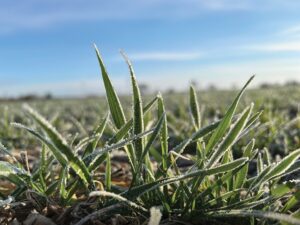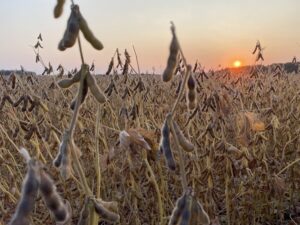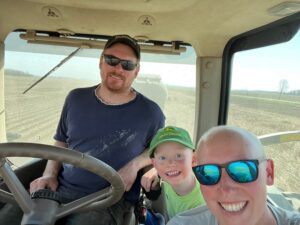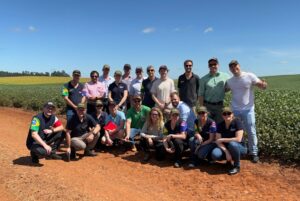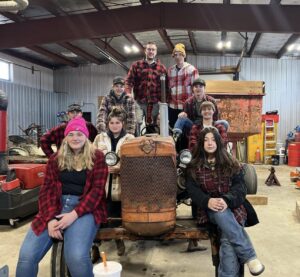The 4-Hers
GROWING INTEREST IN CROP PRODUCTION
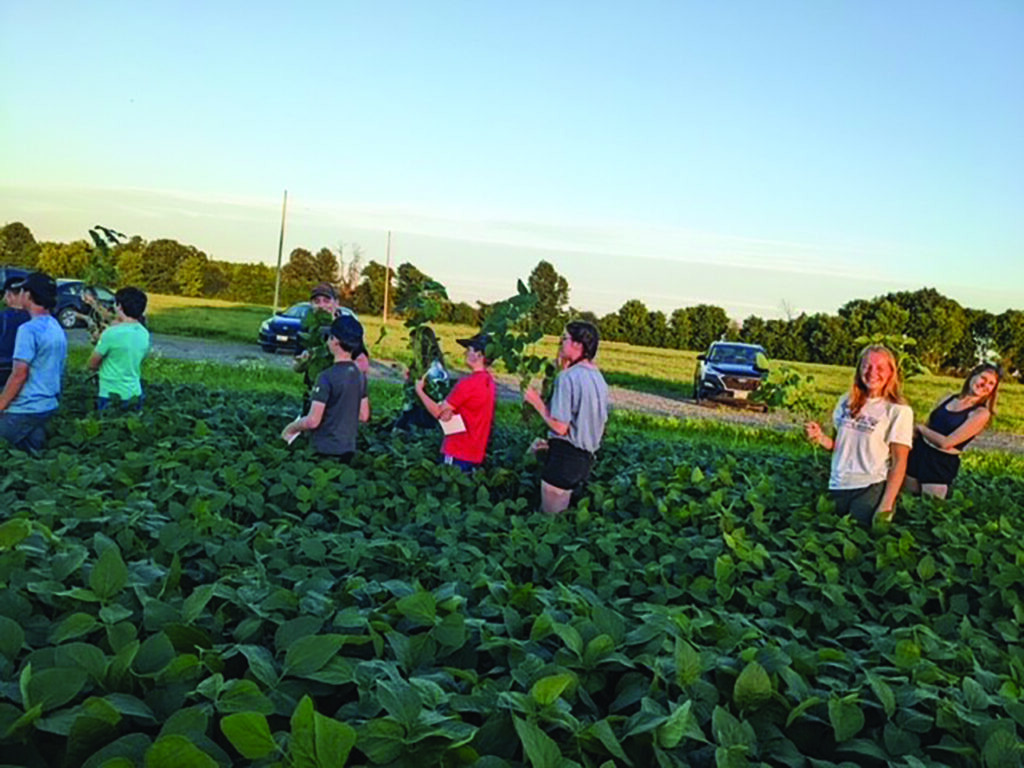
CULTIVATING AN INTEREST IN AGRICULTURE AT A YOUNG AGE CAN HELP INFLUENCE THE FUTURE OF ONTARIO AGRICULTURE — and 4-H clubs are often the first place Ontario youth — farm kids and urban kids alike — can get started. Ontario’s 4-H program has a broad network of leaders and industry experts across the province, and there is a significant amount of knowledge transfer to these youth, some of them as young as nine years old.
In the West Carleton 4-H Foodgrains club, members are learning how farmers grow crops and grow their own! Members learn about crop rotation and select a crop each year to grow on a 10-acre plot of land owned by the Carp Agricultural Society. The seed is donated, and a local farmer plants and harvests the crop for the club. Money raised from the crop sale is then donated to the Canadian Foodgrains Bank. Members also grow a small sample of that grain in their backyards to get an idea of what is required to grow it and to observe the growth stages of the plant easily. Members regularly scout their field to assess how the crop is growing and have even been involved in evaluating the difference in growth between conventional and no-till methods.
Led by Josie Leaman and Jean Sullivan, with help from local agronomist Paul Sullivan, the topics of the 4-H club meetings include soil sampling, soil health, weed identification, crop diseases, and wildlife damage. Members learn skills such as using a hula hoop to estimate population counts and scouting for aphids in soybean fields. Field trips to a local mill to observe how flour is made and a brewery to learn how barley is used in making beer — with members getting a taste of the product before the alcohol is added — round out the learning. Achievement projects — an opportunity for members to demonstrate what they have learned — have included posters, slide shows, and videos posted on social media.
UNIQUE LEARNING OPPORTUNITIES
In 2020, the club’s barley was processed by Ottawa Valley Grains and packaged into one-kilogram bags for sale to the public, with each bag labelled with the club’s story. And while learning about GPS and mapping, corn was planted in the shape of the well-known Carp Fair barn in 2023 in hopes of creating a corn maze. While they weren’t able to open the maze, the corn and stalks were handed out to visitors at a farmers’ market.
Members gain a lot from participation in the club. “I think there’s a lot of science and different things mixed into it, as well as just learning about things that a lot of kids don’t have the advantages of learning in school,” says club member, 13-year-old Ali McLean. “Also, getting to know other people in the farming community and people who are around your age and who are interested in things that you’re interested in.”
Though she hasn’t grown up on a farm, Ali has a deep connection to the farming community, and her future plans include studying agricultural business and having a farm of her own someday.
WELLINGTON COUNTY
In Wellington County, 4-H leaders Pat Grotenhuis and Jill Dann lead the West Luther 4-H Field Crop club. Starting in April each year, members begin by doing soil sampling to learn about the different types of soils. With help from local agronomist Todd Woodhouse, members learn about a variety of crops and what would grow best in different soils. With its close proximity to the University of Guelph, the 4-H club enjoys touring their research facility at Elora. They also have toured the Bayer Crop Science Research Farm at Ennotville, learning about soil structure, crop pests, and a fertilizer facility. They have observed how the types of farm equipment tires and level of inflation can reduce compaction on fields.
They have toured a variety of farms, including sod, Christmas trees, and vegetables. They also met with a beekeeper who explained the benefit of bees and crop farmers working together as bees are important to many field crops, and the field crops help feed the bees.
New in 2024, the club will explore forages and cover crops as many members also have livestock and want to learn about this aspect of cropping. The leaders have also developed some new Achievement Program ideas to appeal to new and experienced 4-Hers. Members can choose from project ideas like staggering the planting of seeds in clear, plastic cups to demonstrate the different growth stages of plants, planting seeds into different soils to observe how soil types affect crop development in the early stages, or writing about their favourite meeting. For those looking for a real challenge, there is an option of looking at a current soil test result for their field and being the agronomist to determine the nutrient needs of the crop they are growing. Thirteen-year-old Aaron Grotenhuis, a member of the club for the last four years, says he “likes everything about the club, especially learning about crop rotations.” As he heads into high school in September, he says he hopes to pursue a career in the trades, likely in construction and wants to continue to help his parents on their dairy farm, maybe even having a hobby farm of his own. •



